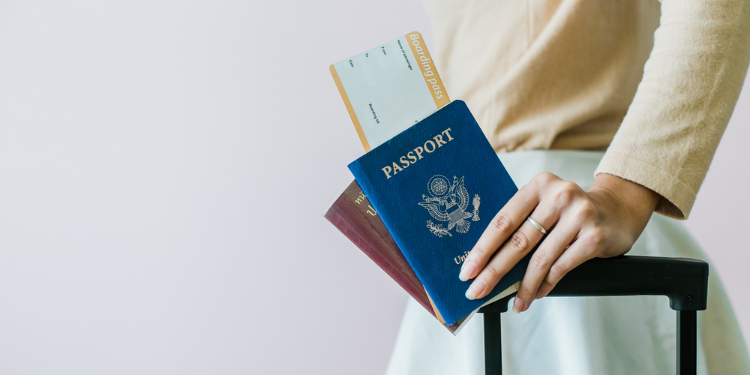The cost of getting a passport and (if necessary) a visa varies by nationality
The first factor that can make an expat's life easier or more difficult is the cost of getting a new passport or renewing it. In most countries, people need to renew their passport every 10 years. In some countries, it is very affordable, while in others, it requires spending over a hundred dollars.
Czechia, Latvia and Spain have very affordable passports at only $27, $29 and $33. On the other hand, citizens of Australia, Mexico, Switzerland, the United States and the United Kingdom must spend quite a lot of money to issue or renew their passports: $230, $170, $140, $130 and $100, respectively, according to Forbes. For families with multiple members, the total amount for getting these passports for everyone when starting a new expat adventure abroad can be very high.
The second passport-related expense is paying for visas. If your home country doesn't have a bilateral or regional agreement with another country, you will have to pay for a visa prior to arriving or right on arrival. The good thing about visa-on-arrival, which some countries like Kenya and Indonesia have normalized, is that it's fast. You don't need to plan too much; you're not on any waitlist; you just need to have cash to pay for the visa-on-arrival at the airport right after landing.
Unfortunately, for most countries, the visa needs to be applied for prior to traveling. The organizational chaos caused by the pandemic, the short-staffing of embassies, and surges in applications might put you on a long and uncertain waitlist for a visa – even for a relatively simple tourist or visitor visa. Having to apply for a tourist or business visa months before actually taking a short trip is stressful for many expats.
On top of that, some countries' short-term non-immigrant visas are very expensive. At the top of the list is the United States, whose tourist visa now costs $185 and which has a notoriously cumbersome process. Even those visiting on the short-term need to provide information about their work history, family, contacts in the US, financial ability and social media activity. They also need to find time to attend an in-person interview at their local US embassy.
Expats with passports that qualify for the Visa Waiver Program of the US can avoid the draining application procedure described above. Countries on this program are mostly European ones and a few high-income Asian countries like Singapore and Japan. Unfortunately, most expats from the developing world have to go through the expensive and tiring visa application process. Some representatives of the American tourism industry have appealed for a simplification of this procedure to stop discouraging potential visitors from coming to the US.
Apart from the US, some other countries with notoriously high visitor visa fees are Russia ($160), Nigeria ($160-180) and Algeria ($160).
Countries with the strongest and weakest passports
The Henley Passport Index is a yearly ranking of the world's passports in terms of the number of countries they give visa-free access to. In 2023, they ranked the passports of Singapore, Germany, Italy, Spain, Austria, Finland, France, Japan, Luxembourg, South Korea and Sweden as the most privileged in the world. Expats with these passports can enter close to 200 countries without a visa. Singaporeans, for instance, can enter 192 countries, and the Swedish can enter 189.
While expats from these countries still need a work visa or digital nomad visa if they plan on working abroad, they can more easily conduct short business trips and build a transnational professional network. Meanwhile, the countries with the weakest passports are in the Middle East, Asia and Africa. Some are countries were recently affected by war (e.g., Afghanistan, Iraq), but the list also includes more stable countries like Pakistan and Bangladesh. Pakistan's passport, for instance, is weak partly because of terrorism links. Pakistani expats can travel to only 11 small countries (e.g., Haiti, Trinidad and Tobago) without a visa – they need a visa for all major countries.
Having a weaker passport may also lead to an attitude of mistrust from immigration officials, even to racial profiling and discrimination. African journalists and artists have complained of missing important work events abroad because their visas took too long to be issued or were simply denied for vague reasons. On the International Journalists Network website, the Beninese journalist Virgile Ahissou says that his peers are asked for a longer list of supporting documents and face stricter passport control measures at the airport compared to non-African journalists.
















